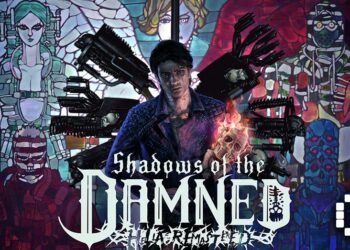Take-Two Interactive, the publisher behind games like GTA V and the Borderlands series has acquired Farmville developer Zynga, though investors don’t seem to be taking it well.
Take-Two paid a total of 12.7 billion USD for Zynga, in a cash-and-stock deal that sees one of the biggest casual game developers added to Take-Two’s rolodex of talents. The acquisition represents the largest in the industry yet.
It looks like a big part of this purchase was to make mobile games based off of various Take-Two properties, as they mentioned in their press release:
“Take-Two has an extensive catalog of commercially and critically successful console and PC titles with engaged and loyal communities of players, and there is a meaningful opportunity to create mobile games and new cross-platform experiences for many of these properties”, the press release reads.
“We believe we have the best collection of console and PC intellectual property in the interactive entertainment business, and it’s basically nearly entirely unexploited for mobile and free-to-play around the world,” Take-Two Chief Executive Strauss Zelnick said in a conference call. “Zynga’s best-in-class studios can help us develop that property.”
Despite this, it looks like shareholders in Take-Two aren’t exactly playing ball with the Zynga acquisiton.

Take-Two’s share price has taken a bit of a tumble since the news was announced last night, closing at 13.3% down with its worst at 14% down. Meanwhile stock in Zynga soared, with the share prices up 45% thanks to the new parent company.
“It’s a no-brainer for Take-Two to get franchises like GTA and Red Dead on mobile”, says Bloomberg reporter Jason Schreier. “A free-to-play iOS version of GTA Online will make kajillions, and Zynga‘s got the expertise to develop that. But Take-Two is years late and spent way too much, which may explain market negativity”.
Take-Two’s share problems are likely a reaction to the price of the merger- 12.7 billion is a lot for any company, even one as storied as Zynga.
“It is a big price tag for a company that has not consistently produced profits or new blockbusters,” said Erik Gordon, professor at Ross School of Business, University of Michigan via Reuters.
















![[gamescom asia 2024] EXCLUSIVE: Oil King’s Rise from EVO Champion to a Fighting Game Icon!](https://cdn.gamerbraves.com/2024/11/Oil-King-Interview-SF6_FI-360x180.jpg)
![[gamescom asia 2024] EXCLUSIVE: GamerBee Shares His Professional Journey – Over 10 Years in Street Fighter](https://cdn.gamerbraves.com/2024/11/GamerBee-Interview-SF6_FI-360x180.jpg)








